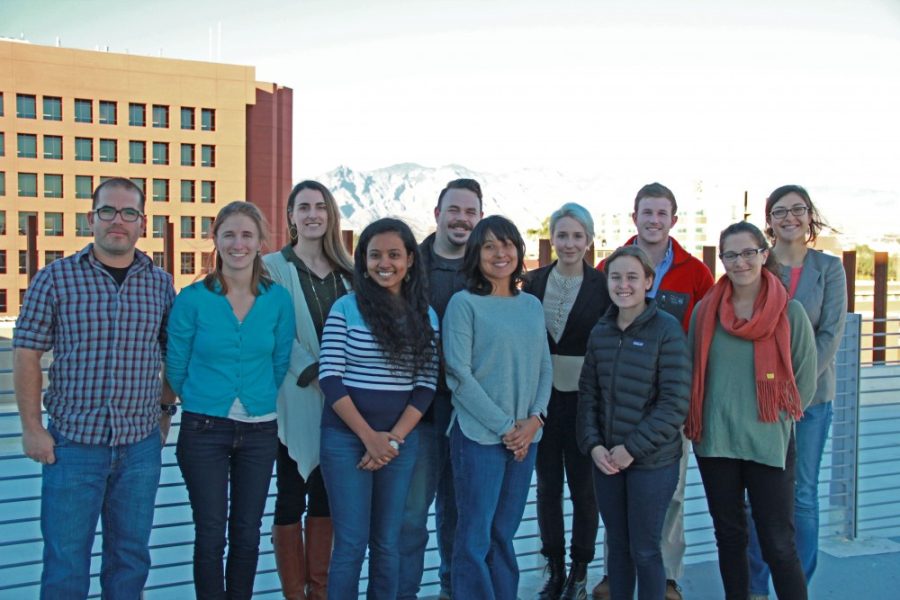Eleven UA graduate students have been named Carson Scholars, earning a total award of $55,000.
The Carson Scholars program is meant to fund graduate students researching interdisciplinary environmental issues. Scholars’ areas of studies range from geology to entomology to anthropology. One thing they all have in common: a desire to learn new ways to improve our relationship with the planet.
Founded in the name of Rachel Carson, a marine biologist and environmentalist responsible for alerting the world to the dangers of chemical pesticides, the program has awarded a total of $320,000 to 64 graduate students on the UA campus since 2011.
Rodolfo Peon Anaya, a graduate student within arid lands resource sciences, is one such scholar. Anaya’s research is focused on solar energy; according to Anaya, specifically “heat from high concentration photovoltaics for water desalination.” He is currently partnered with the Navajo Nation in an effort to use this research to help bring clean water to the community.
RELATED: Great Barrier Reef: dead, dying, or still vibrant?
“It is a great honor to be a recipient of the Carson Scholars award. I was looking forward to applying from the first time I heard about it,” Anaya said. He hopes that receiving this scholarship will allow him to share his research with others and solve world-wide energy problems.

“I personally believe that becoming a Carson Scholar opens an excellent opportunity to share my research experiences and ideas at their world-class organized events and expand my collaborator’s network by giving me the privilege of joining their family of change makers for a better, more sustainable and peaceful world.”
Other winners echo Anaya’s enthusiasm.
“Besides the grant money, I think the most valuable thing is the mentorship,” said Genevieve Comeau, a graduate student in entomology and insect science, who focuses on insect-borne diseases.
The scholarship will allow her to continue her current project studying an invasive mosquito species in Arizona that appeared thirty years ago. Comeau is trying to learn whether or not their larva are capable of carrying the birth defect-causing Zika virus.
RELATED: Featured Science: Critical Zone Observatory explores earth, atmosphere
Diana Liverman, UA regents’ professor of geography and development, founded the scholarship; funding and sponorships comes from the UA Institute of the Environment, the Agnese Nelms Haury Program in Environment and Social Justice, Biosphere 2, Institute for Energy Solutions, as well as private donations.
“The Agnese Nelms Haury Program in Environment and Social Justice began in Fall 2014. At that time, we provided [additional] scholarships to the Carson Scholars Program, along with Biosphere 2 and the Renewable Energy Network,” said Anna Spitz, director of the Haury Program. The Haury Program chose six of the Carson Scholars to be recognized as Agnese Nelms Haury Fellows, their largest amount so far, with one of the requirements being that the scholars’ work must involve social justice and the environment.
The remaining Carson Scholars are: Amy Hudson, Denise Moreno Ramírez, Tamee Albrecht, Pradyna Garud, Megan Mills-Novoa, Amado Guzmán, Alex Erwin, Rebecca Beadling and Kathryn Gougelet.
Follow Nicole Morin on Twitter.









